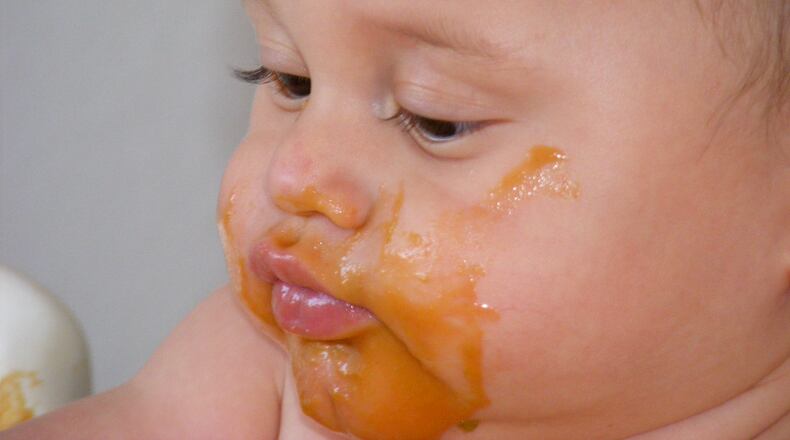A new congressional report has found 95% of tested baby foods contain toxic chemicals that lower babies’ IQ, including arsenic and lead.
The report, which was released Thursday, was based on a study conducted by Healthy Babies Bright Futures (HBBF) in 2019. The organization says it is an “alliance of scientists, nonprofit organizations and donors working to create and support initiatives” that reduce exposures to neurotoxic chemicals in the first few months of an infant’s life.
The subcommittee in economic and consumer policy committee under the U.S. House Committee on Oversight and Reform oversaw the congressional study. It was launched after the 2019 HBBF study, which tested 168 baby foods spanning 61 brands and found that 95% of baby foods tested are contaminated with one or more of four toxic heavy metals: arsenic, lead, cadmium and mercury. All but nine of the 168 tested baby foods contained at least one of these four toxic metals, and 87% of foods tested contained more than one toxic heavy metal.
The new congressional report, according to HBBF, finds companies routinely ignore internal standards and fail to test their finished, processed products, leading to the use of contaminated ingredients and additives and unknown amounts of heavy metals in the final mixtures that babies eat.
Harmful metals are found in all food, not just baby food. They occur naturally or from pollution in the environment. Crops absorb them from soil and water, and they are even found in organic food. Their presence in baby food raises unique concern because babies are more sensitive to the toxic impacts, according to officials.
HBBF said parents can make safer baby food choices for 80% less toxic metal residue. It said some popular baby foods have higher levels, such as rice-based snacks, juice and sweet potatoes.
“This compelling new evidence lays bare FDA’s clear failure to protect babies from the toxic heavy metals in their food,” said Charlotte Brody, HBBF’s national director. “While FDA studies the problem and companies set lax internal standards, millions of babies are exposed to these contaminants every day. It is time to step up and finally take clear action.”
“The science on these toxic metals is clear: There is no question of the harm they cause to babies’ developing brains,” said Jane Houlihan, HBBF’s research director. “Parents can only do so much to shop their way out of this problem. We need fast action by FDA and baby food companies to protect our vulnerable infants.”
The organization said baby food companies are paying attention to the problem.
“Current arsenic contamination levels in rice cereal and juice are 37 and 63% lower, respectively, than amounts measured a decade ago because of companies’ success in reducing metals levels in their food ingredients to comply with draft FDA guidance,” it said. “They have shifted growing and processing methods, switched plant varieties, changed irrigation practices, and sourced from cleaner fields.”
About the Author
The Latest
Featured



